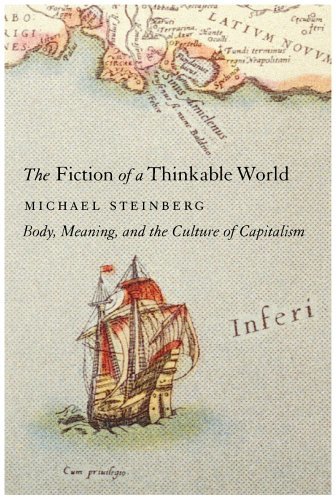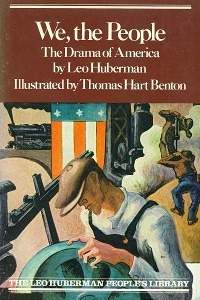The Fiction of a Thinkable World: Body, Meaning, and the Culture of Capitalism
$17.95
Paperback, 224 pages
ISBN: 1-58367-115-3
Released: April 2005
In the culture of the modern West, we see ourselves as thinking subjects, defined by our conscious thought, autonomous and separate from each other and the world we survey. Current research in neurology and cognitive science shows that this picture is false. We think with our bodies, and in interaction with others, and our thought is never completed. The Fiction of a Thinkable World is a wide-ranging exploration of the meaning of this insight for our understanding of history, ethics, and politics.
Ambitious but never overwhelming, carrying its immense learning lightly, The Fiction of a Thinkable World shows how the Western conception of the human subject came to be formed historically, how it contrasts with that of Eastern thought, and how it provides the basic justification for the institutions of liberal capitalism. The fiction of a world separated from each of us as we are separated from each other, from which we make our choices in solitary thought, is enacted by the voter in the voting booth and the consumer at the supermarket shelf. The structure of daily experience in capitalist society reinforces the fictions of the Western intellectual tradition, stunt human creativity, and create the illusion that the capitalist order is natural and unsurpassable.
Steinberg’s critique of the intellectual world of Western capitalism at the same time illuminates the paths that have been closed off in that world. It draws on Chinese ethics to show how our actions can be brought in accord with the world as it is, in its ever-changing interaction and mutual transformation, and sketches a radical political perspective that sheds the illusions of the Western model. Beautifully conceived and written, The Fiction of a Thinkable World provides new ways of thinking and opens new horizons.
It’s one thing to say that the Cartesian mind/body dichotomy is meaningless. Everyone does that. It’s quite another to actually try to figure out what the world would be like if this were really true. In a work of remarkable intellectual courage and extraordinary erudition, Michael Steinberg tries to do just that. The result is a groundbreaking work of ethical theory and a fascinating read. I don’t know if this book will be considered important fifty years from now. But I certainly hope so, because it deserves to be.
—David Graeber, Yale University
Author of Toward an Anthropological Theory of Value
In a world in which theory and political action are so often disconnected, Michael Steinberg has done a masterful job of showing us the connections. This book will deepen our insights into the struggles we face to make meaning in this world.
—Robert Jensen, University of Texas at Austin
Author of Citizens of the Empire: The Struggle to Claim Our Humanity
Michael Steinberg has published in the Journal of the History of Ideas, the American Choral Review, and a number of law reviews, and was the author of the website “Why This War.” He lives in Rochester, New York.
Publication Date: April 2005
Number of Pages: 224
Paperback ISBN: 9781583671153
Related products
-
Monthly Review Volume 2, Number 9 (January 1951) [PDF]
$10.00 Add to cart -
Monthly Review Volume 2, Number 4 (August 1950) [PDF]
$10.00 Add to cart -
Monthly Review Volume 2, Number 3 (July 1950) [PDF]
$10.00 Add to cart -
Monthly Review Volume 1, Number 12 (April 1950) [PDF]
$10.00 Add to cart -
Monthly Review Volume 1, Number 2 (June 1949) [PDF]
$10.00 Add to cart -
We, the People: The Drama of America
$15.00 – $18.00Price range: $15.00 through $18.00 Select options This product has multiple variants. The options may be chosen on the product page

![Monthly Review Volume 2, Number 9 (January 1951) [PDF]](https://monthlyreview.org/wp-content/uploads/2015/09/Monthly Review Volume 2, Number 9 (January 1951) [PDF].jpg)
![Monthly Review Volume 2, Number 4 (August 1950) [PDF]](https://monthlyreview.org/wp-content/uploads/2015/09/Monthly Review Volume 2, Number 4 (August 1950) [PDF].jpg)
![Monthly Review Volume 2, Number 3 (July 1950) [PDF]](https://monthlyreview.org/wp-content/uploads/2015/09/Monthly Review Volume 2, Number 3 (July 1950) [PDF].jpg)
![Monthly Review Volume 1, Number 12 (April 1950) [PDF]](https://monthlyreview.org/wp-content/uploads/2015/09/Monthly Review Volume 1, Number 12 (April 1950) [PDF].jpg)
![Monthly Review Volume 1, Number 2 (June 1949) [PDF]](https://monthlyreview.org/wp-content/uploads/2015/09/Monthly Review Volume 1, Number 2 (June 1949) [PDF].jpg)
